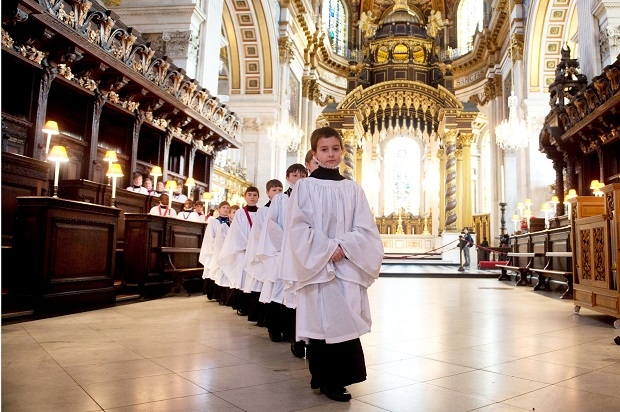First the godly, then the godless, then the godly again. The public debate about whether Britain is indeed a Christian country, which the Prime Minister kicked off with his article in the Church Times saying that Britain should be evangelical about its Christianity, took legs when fifty-odd self-important atheists took issue with his remarks in a letter in the Telegraph and now the debate has a new spin after a group of academic philosophers wrote to the same paper (lucky letters editor) to contradict the atheists.
“In important ways Britain remains a Christian country, as the Prime Minister has rightly claimed”, they wrote. “The establishment of the Church of England enshrines Christian humanism as a public orthodoxy, which continues to inform a good many of our laws, institutions and public rituals. This Anglican establishment is liberal, imposing no civil penalties on non-Anglicans, which is why so many non-Anglican Christians and non-Christian believers support it.” The philosophers conclude by calling on the atheists to exercise “liberal tolerance”.
Well, plainly they’re right that British culture is still infused with Christianity. Our morals are not primarily taken, as the atheists suggest, from the pre-Christians (Cicero? Aristotle?) and the post-Christians (Voltaire? Paine? Their good selves?) passing Jesus on the way. The Good Samaritan, the widow’s mite, the notion of being my brother’s keeper powerfully underpins our sensibility to the extent that we never really question it. Our whole conception of human rights as well as more obvious bits of the landscape – churches, Christian names, swear words – are self-evidently Christian, and so, as Dominic Grieve points out, are our laws. It may be an implicit Christianity rather than the religion of the baptised, and far more evident among older people than younger ones (you’ve seen the current RE curriculum?), but it’s still there. (In fact, while we’re at it, Christian humanism, which the philosophers talk about in their letter, is tautologous; all of the original Renaissance humanists were Christian apart from one rather odd individual with a penchant for classical paganism.)
Nick Clegg, an unbeliever who, unlike quite a few participants in the debate actually goes to church, chimed in the argument on the Anglican side, declaring that “one of the great Christian values is tolerance, respect for other people, other nations, other faiths, other views so I think our Christian heritage sits very comfortably alongside our plurality, our tolerance as a people”. Which more or less puts a Lib Dem spin on the creator. Far be it from me to give comfort to the unbelievers but I fear it’s not quite the case. Christianity, for quite a bit of its history after Constantine, did not conspicuously respect other faiths – nor indeed did they respect us. It had a keen sense of its function as a means of salvation; it tended to identify the creeds of the unbelievers as errors to be refuted, not as perfectly decent alternative world views.
Mind you, I expect Mr Clegg has in mind the Anglican settlement after 1688 when a more gentlemanly take on Christianity obtained. I’ve just been reading Terry Eagleton – perhaps the most impeccably orthodox intellectual in public life just now – discuss the tamed and respectable Christianity that was fashionable from the eighteenth century in his cracking new book, Culture and the Death of God: “The Earl of Shaftesbury put in a plea for what he called ‘complacency, sociableness and good humour in religion’.”
And indeed, in the defenders of Christianity right now, there’s a good deal of wishful thinking about the faith as essentially the bulwark of a decent, hard-working middle class; it isn’t; not really. As Terry Eagleton rightly points out, “the New Testament has little or nothing to say of responsible citizenship. It is not a ‘civilised’ document at all. It shows no enthusiasm for social consensus. Since it holds that such values are imminently to pass away, it is not greatly taken with standards of civic excellence or codes of good conduct. What it adds to common or garden morality is not some supernatural support but the grossly inconvenient news that our forms of life must undergo radical dissolution if they are to be reborn as just and compassionate communities.” It is, in fact, neither a prop for conservatism nor socialism.
Anyway, to return to the original debate, there’s a remedy for those people who feel strongly that Britain is a fundamentally Christian country. Fill those pews. Become active members of a parish, not passionate partisans of the Church of England from outside. If you want to demonstrate the Christianity of British culture, why there’s a church somewhere near you. Go to it.







Comments